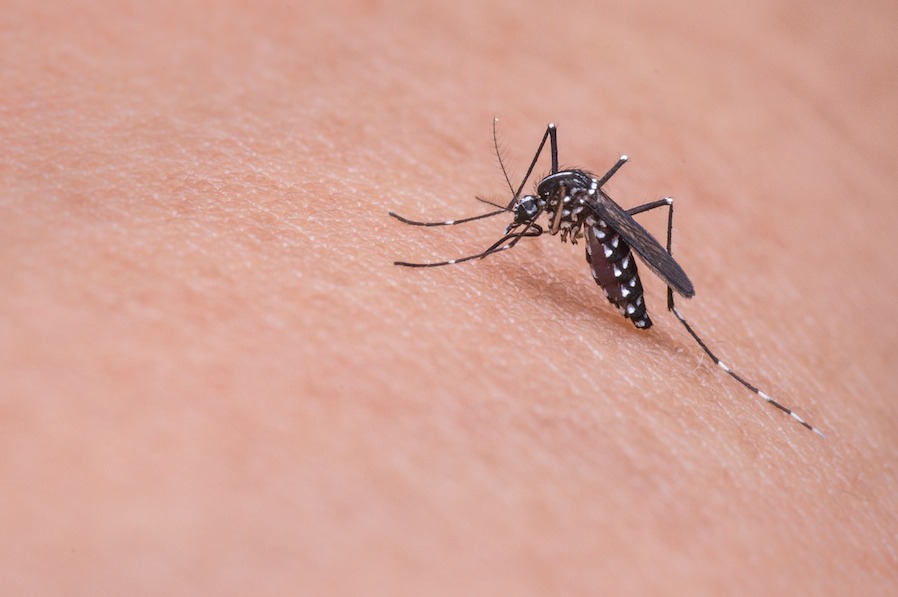When you’re part of a condo community in the Philippines, life is pretty sweet. It’s easy to start believing there’s a force field protecting you and your loved ones from reality, but sickness can pop that force field like a bubble. Summer is a great season to enjoy condo living with the family, but it’s also a time when you and your loved ones need to be on guard against illnesses.
Think about how much the climate changes and how much your family’s habits change during the summer months. Whether or not you think about it, these changes can lead to an increase in health risks that can affect you and your family. To make sure your summer isn’t wasted in dealing with health problems, you’ve got to learn how to be safe from summer illnesses.
Of Coughs, Colds, and Allergies
There’s hardly anything worse than wasting your vacation with a stuffy nose or a hacking cough. How can you have any rest and recreation when your respiratory system is failing you? In the summer, increased humidity can encourage the growth of mold, which is a pretty nasty allergen. Even if humidity isn’t an issue in your abode, allergies can be triggered by pet dander (did you know that some dog breeds shed more in warmer seasons?) or dust. And regular exposure to drastic changes in temperature, such as when you move from a hot area of the condominium into a cooler one, can increase your susceptibility to coughs and colds.
The first defense against this set of summer illnesses is to be a total neat freak. Clean, clean, clean your condo! Check your A/C filters, your electric fans, bathrooms, kitchen, and other areas for allergens like dust or mold, and get rid of them as soon as you can. Electronics also attract a lot of dust, so you have to clean your home entertainment systems and computer setups too. To protect yourself against temperature-induced sickness, minimize the number of times you move from hot areas to cool ones.
The Heat Can Literally Make You Sick

Photo courtesy of Ken Kistler via Public Domain Pictures
The summer sun is your biggest frenemy: it brings good vibes and much-needed vitamin D, but it also causes really intense heat. That heat can lead to excess sweating, which can cause prickly heat, dehydration or heat stroke. The risk of heat stroke is greater among obese individuals or those with a heart condition. There’s also an added risk of skin infections in the summer. Sweat in the armpits and other folded areas of your body make them prime growing areas for yeast and other fungi, which can lead to serious rashes.
To avoid those problems, you want to first make sure that your condo is generally cool. It’s been said that the minimum comfortable setting is 25 degrees Celsius, so consider using that temperature in your climate control, but feel free to use even lower settings if that’s not low enough for you. If you’re just making do with electric fans, ventilation and circulation are critical. Try opening your windows to promote airflow throughout your unit. Wearing looser and more breathable clothing is also a plus. Finally, don’t forget to hydrate: family members must drink water regularly to replenish what they lose from sweating.
Don’t Let Germs Spoil Your Summer Smorgasbord

Photo courtesy of kaboompics.com via Pexels
Sharing is caring, we say, especially among families in the Philippines. But when there’s a risk of sharing sicknesses, you need to take extra care. Summer is a great time for families to eat together at home, and typically we’re all in the mood for seafood around this time. But between the heat that can make bacteria in food grow faster and the predicted increase in red tide alerts due to El Niño this summer, the risks of food poisoning are much greater.
Keep yourself and your family safe by practicing good food habits. Never leave food out in the heat for long periods, especially those with dairy products, meat, tomato sauce, or mayonnaise. If you have hot leftovers in a covered container, putting them in the fridge increases the risk of bacterial contamination because of the condensation that forms on the inside of the lid, which provides a hot, moist environment for bacteria to thrive in. If you really have to put that hot food away, leave the lid off first then put it in the refrigerator when the food is cold enough. Finally, keep an ear out for any news of red tide or other forms of seafood contamination.
Minimize the Menace of Mosquitoes

Photo courtesy of mikadago via Pixabay
During summertime, showing skin is in. Shorts, tank tops, and sleeveless shirts come into fashion because they’re stylish ways to stay cool. With that exposure, though, comes a greater risk of insect bites. In particular, getting bitten by a mosquito puts someone at risk of contracting a wide host of contagious diseases like dengue, malaria, and Zika fever. Technically, not all of these are exclusively summer diseases, but the risks of being infected by these vectors typically go higher during summer. More exposed skin leads to more risk of getting bitten by mosquitoes and contracting more mosquito-borne illnesses.
To reduce the risks, eliminate any possible breeding grounds for mosquitos in your condo community. DMCI Homes takes pride in their responsive maintenance and administrative staff, so don’t hesitate to report any puddles or other instances of stagnant water in common areas. And let’s say a mistake in condo home improvement leads to a leak in your bathroom or kitchen. Don’t wait to get it fixed and give mosquitos a chance to multiply. Get it repaired as soon as possible.
The Overlooked Threats from Getting Wet

Photo courtesy of Juan Salamanca via Pexels
Having access to a swimming pool is a typical perk of condo living in the Philippines. If you can just go down and enjoy a quick dip, why wouldn’t you? However, pool-based activities can lead to a variety of recreational water illnesses (RWIs) including diarrhea, swimmer’s ear, and complications from wound infections. Since pools are a common amenity used by multiple families, there is a definite risk of infections spreading.
Practice good hygiene before and after entering a pool by taking a good shower. If someone in your family has an open wound, make sure it’s covered in a watertight bandage. If the wound is very large and can’t be covered, then it’s best to not let that family member swim until the wound has healed at least to the point where covering it is possible. Remind the kids never to drink the water and make sure to let out any water that may have collected in their ears after they’re done swimming. Finally, the pool is also a community responsibility, so give the maintenance staff a heads up when it looks like the pool is due for a cleaning, though this should not be an issue if the pool is cleaned regularly.
Vacation season is a time for relaxation and, let’s be honest, it’s generally when people have license to be lazy. However, that doesn’t mean that you should be complacent in protecting your family’s health. Following these basic tips in preventing common summer illnesses is the first step towards having a fun and safe family staycation in your DMCI Community.


